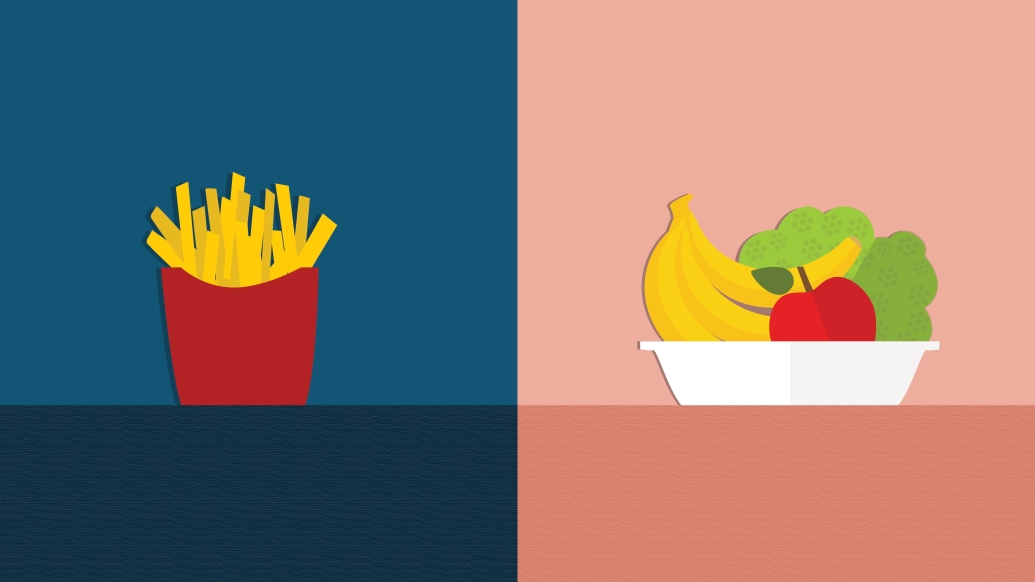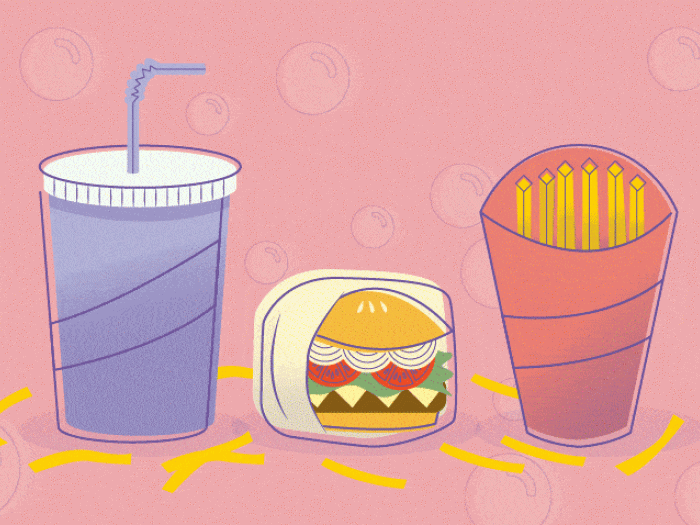Getting adolescents to eat better and exercise can be a delicate dance. But there are simple steps parents can take to make wellness a family affair.
7:00 AM
Author |

Diet.
It's a loaded word, particularly when used in conversation with young people struggling to manage their weight.
SEE ALSO: Should Schools Start Later Because of Teen Sleep Deprivation?
While medical professionals consider the term to define what an individual is putting in his or her body, a teenager could react differently.
"They might think it means the 'grapefruit diet' or the South Beach Diet or whatever the fad might be," says Terrill Bravender, M.D., M.P.H., an adolescent medicine physician at University of Michigan C.S. Mott Children's Hospital. "You have to be careful with the language you use."
Nor are verbal cues the sole means of motivation. Exposure to healthful routines and foods also play a key role in influencing whether new behaviors become permanent.
"Because they're still developing, teens have an opportunity to make lifelong change," says Bravender.
Such a window is crucial: Obesity has quadrupled in adolescents during the past 30 years and now affects 21 percent of individuals ages 12 to 19 in the United States. (Eating disorders, on the other hand, are the third most common chronic condition in that age group — and can arise while teens are trying to lose weight.)
To help parents promote safe and effective choices, the American Academy of Pediatrics released new guidelines in August.
Bravender, who directs the adolescent medicine division at Mott, explained some of them:
Converse, don't criticize: Nagging and blame won't help teens shift their habits or self-image. But an honest show of concern, if delivered tactfully, could.
Says Bravender: "You might ask the child in a very caring way: 'How do you feel about your weight? Are you interested in making any changes?' If a kid says 'No,' say, 'I'm worried about your health, and I'm going to help you with some basic things.'"
Lead by example: Offers to assist are futile — and disingenuous — if other family members aren't living healthfully, too. And that doesn't just mean eating right and getting exercise.
How adults talk about food can make a big impact. "They might say, 'I'm not really hungry, but I'm going to eat this piece of cake anyway,' or 'Oh, I'm so bad,'" Bravender says. Savoring a small dessert isn't the problem; stigmatizing sweets and eating them gratuitously is.
Instill small changes: The best way to curb midday snacking? Serve breakfast — and, no, not a sugary granola bar or cereal. "It sets your metabolic tone for the day," says Bravender, who suggests whole grain toast with peanut butter for carbohydrates, proteins and a fat source.
SEE ALSO: 3-D Printed Airway Split Saves Texas Teen
Another easy move is to nix sugary soft drinks and juices. "If you drink a regular bottle of soda pop, that's 250 calories. If you have two of them per day, that's going to make you gain a pound a week," Bravender says. Limit fast-food outings to once weekly.
Eat together: Family dinners help ensure better nutritional balance and intuitive eating (in other words, not mindlessly inhaling takeout alone while glued to a smartphone or television). Serve home-cooked meals on reusable plates to guide portion control. Talk while you eat.
Don't deny second helpings, but Bravender advises waiting 15 to 20 minutes — the time it takes for levels of ghrelin, a hormone produced by the stomach that increases appetite, to fall.
Encourage exercise (and rest): Young people need 60 minutes of daily physical activity, but parents should realize that benchmark isn't a rigid one. "Any activity is better than none," Bravender says.
Likewise, adolescents ought to get 8 to 9 hours of sleep nightly. Anything less, he notes, "creates a level of stress that can drive eating when you aren't hungry" and can affect metabolism.
Limit screen time: Time spent in front of screens (for entertainment) shouldn't exceed two hours daily, according to the American Academy of Pediatrics. The group maintains that teens with a television in their bedroom have poorer dietary intake and exercise less often.
Such leisure, Bravender says, isn't just sedentary: "When you watch TV, you actually use up less metabolic energy than if you're just sitting there doing nothing." Reading a book or having a conversation are alternatives that require more energy.
Keep perspective: Beyond excluding "diet" from the vocabulary, put the focus on living well and maintaining a healthy weight. Many teens, Bravender says, are still growing and don't necessarily need to drop pounds.
And while it's OK to have shared goals and celebrate them, families should never support extreme or overly restrictive regimens. "Not only do they not work in the long run, they can impact growth and development," Bravender says.

Explore a variety of healthcare news & stories by visiting the Health Lab home page for more articles.

Department of Communication at Michigan Medicine
Want top health & research news weekly? Sign up for Health Lab’s newsletters today!





